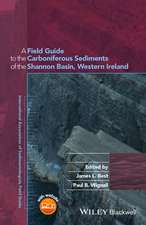Foundation Engineering Handbook
Editat de Hsai-Yang Fangen Limba Engleză Hardback – 30 dec 1990
| Toate formatele și edițiile | Preț | Express |
|---|---|---|
| Paperback (1) | 2058.53 lei 38-44 zile | |
| Springer Us – 6 noi 2012 | 2058.53 lei 38-44 zile | |
| Hardback (1) | 2045.85 lei 38-44 zile | |
| Springer Us – 30 dec 1990 | 2045.85 lei 38-44 zile |
Preț: 2045.85 lei
Preț vechi: 2691.92 lei
-24% Nou
Puncte Express: 3069
Preț estimativ în valută:
391.49€ • 404.49$ • 325.67£
391.49€ • 404.49$ • 325.67£
Carte tipărită la comandă
Livrare economică 15-21 martie
Preluare comenzi: 021 569.72.76
Specificații
ISBN-13: 9780412988912
ISBN-10: 0412988917
Pagini: 923
Ilustrații: XVII, 923 p. In 2 volumes, not available separately.
Dimensiuni: 210 x 279 x 49 mm
Greutate: 2.15 kg
Ediția:2nd ed. 1991
Editura: Springer Us
Colecția Springer
Locul publicării:New York, NY, United States
ISBN-10: 0412988917
Pagini: 923
Ilustrații: XVII, 923 p. In 2 volumes, not available separately.
Dimensiuni: 210 x 279 x 49 mm
Greutate: 2.15 kg
Ediția:2nd ed. 1991
Editura: Springer Us
Colecția Springer
Locul publicării:New York, NY, United States
Public țintă
ResearchDescriere
More than ten years have passed since the first edition was published. During that period there have been a substantial number of changes in geotechnical engineering, especially in the applications of foundation engineering. As the world population increases, more land is needed and many soil deposits previously deemed unsuitable for residential housing or other construction projects are now being used. Such areas include problematic soil regions, mining subsidence areas, and sanitary landfills. To overcome the problems associated with these natural or man-made soil deposits, new and improved methods of analysis, design, and implementation are needed in foundation construction. As society develops and living standards rise, tall buildings, transportation facilities, and industrial complexes are increasingly being built. Because of the heavy design loads and the complicated environments, the traditional design concepts, construction materials, methods, and equipment also need improvement. Further, recent energy and material shortages have caused additional burdens on the engineering profession and brought about the need to seek alternative or cost-saving methods for foundation design and construction.
Cuprins
1 Subsurface Explorations and Sampling.- 2 Sampling and Preparation of Marine Sediments.- 3 Soil Technology and Engineering Properties of Soils Hans.- 4 Bearing Capacity of Shallow Foundations.- 5 Stress Distribution and Settlement of Shallow Foundations.- 6 Earth Pressures.- 7 Dewatering and Groundwater Control.- 8 Compacted Fill.- 9 Soil Stabilization and Grouting.- 10 Stability of Earth Slopes.- 11 Landslides.- 12 Retaining Structures and Excavations.- 13 Pile Foundations.- 14 Drilled Shaft Foundations.- 15 Foundation Vibrations.- 16 Earthquake Effects on Soil-Foundation Systems.- 17 Foundation Problems in Earthquake Regions.- 18 Offshore Structure Foundations.- 19 Foundations in Cold Regions.- 20 Geotechnics of Hazardous Waste Control Systems.- 21 Reinforced Earth.- 22 Geosynthetics in Geotechnical Engineering.- 23 Deep Compaction of Granular Soils.- 24 Stabilization of Soil With Lime Columns.- 25 Durability and Protection of Foundations.- 26 Ground Anchors and Soil Nails in Retaining Structures.
















